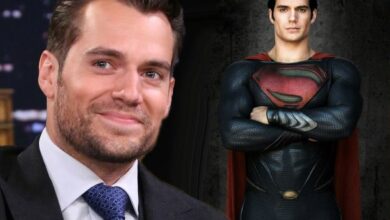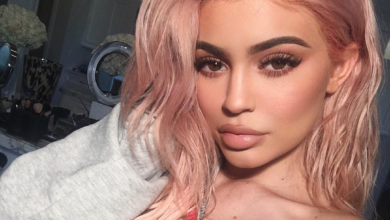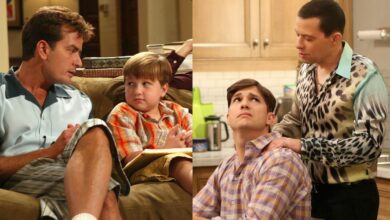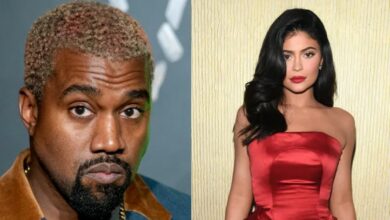Pierce Brosnan Is The Most Tragic James Bond Actor
Pierce Brosnan’s time as James Bond is forgettable for many fans of the franchise, but the actor’s portrayal of the character deserved better scripts.
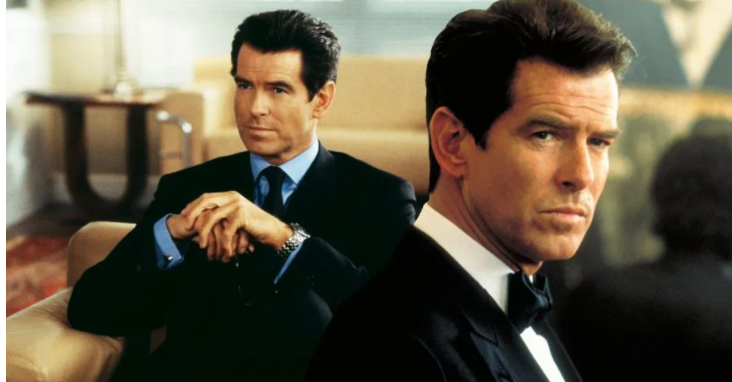
Pierce Brosnan starred in four James Bond films, but his time as 007 is the most tragic of any actor to play the part. Brosnan had initially been expected to succeed Roger Moore as the fictional secret agent but, due to contractual reasons, Timothy Dalton was cast for The Living Daylights. Brosnan eventually received his debut as Bond in GoldenEye. The film garnered considerable acclaim – and Brosnan certainly looked the part.
GoldenEye features a captivating performance by Sean Bean as Alec Trevelyan, a colleague of Bond’s with the code name 006. Trevelyan would prove to be the villain of GoldenEye, and though he lives up to the megalomaniacal ambitions of James Bond villains gone by, his betrayal of MI6 certainly adds an intriguing dimension to his malevolent theatrics. Unfortunately, Brosnan’s following three films did not maintain the standard set by his debut. Though Tomorrow Never Dies, The World Is Not Enough, and Die Another Day all performed considerably well at the box office, they are generally unpopular among both critics and fans of the franchise.
The plots of Brosnan’s 007 films were often tedious and seemed only excuses to include the action, exotic locations, and occasional humor expected in a traditional James Bond movie. Any deviations to the dullness of the plots were usually ridiculously extravagant or contentious. While Brosnan’s films could be considered products of their time, the era is nevertheless beset with ludicrous storylines and gimmicks. The movies represent not only an injustice to Brosnan’s explosive introduction in GoldenEye but an injustice to his performances throughout his time as Bond. As is generally the case, James Bond films become known collectively by which actor is playing 007, but the truth is that Brosnan deserved better scripts than his tenure as Bond afforded him.
Pierce Brosnan Was Great (Even In The Worst Movies)

Brosnan’s performances indicate that he researched and respected the franchise. He manages to blend Sean Connery’s iciness with Roger Moore’s tongue-in-cheek. As the first actor to portray Bond in canon, Connery will likely remain unmatched in terms of demeanor and coolness. However, Brosnan does justice to the character’s debonair manner and portrays 007 in a way that is respectful yet not completely imitative of previous actors.
Brosnan might not be the most beloved James Bond actor, but his downfall comes at the hands of the movies as a whole, not his portrayal. Tomorrow Never Dies, The World Is Not Enough, and Die Another Day are considered among the least popular and worst quality films of the James Bond franchise, but Brosnan still manages to portray the lead character impressively. While his acting in the action sequences was not as notable as his acting in the more dramatic scenes of his films, his performances nevertheless suggest that his tenure could have been remembered for great reasons, had it not been for faltering scripts. GoldenEye showed what a good James Bond film with Brosnan at the helm looked like – and even the story and production of GoldenEye became overshadowed by other films in the franchise.
Brosnan Built On Dalton’s Darkness (At First)

The influence taken from Connery and Moore’s portrayals of Bond set Brosnan up to be popular with fans of the franchise, but perhaps less expected was his commitment to continuing the dark disposition of Bond which was a consistent element of Timothy Dalton’s portrayal. Brosnan’s Bond is ruthlessly professional, and at times actually looks out of place in the scenes that controversially implement CGI. It is important to note that, though Dalton is not among the most popular Bond actors, his representation of 007 is remarkably aligned to how the character is written in the novels by Ian Fleming.
While older James Bond films typically indulged in their exotic and decadent characteristics, the success of the mission is very much at the forefront of Bond’s motives throughout Dalton’s, and indeed much of Brosnan’s films. The glamorous elements of the franchise were reduced to more subsidiary usages following Moore’s departure from the role of Bond, typically becoming more simply nostalgic instances of self-reference. Brosnan’s Bond also sustained some of the intense violence of Dalton’s films, with rather dark implementations of 007’s license to kill including unarmed adversaries. Interestingly, Brosnan also delivers many of the traditional quips and pithy remarks in a particularly sinister tone, refraining from making them simply comical asides.
Why Eon Changed Brosnan’s Bond Movies So Much

Eon Productions is a film production company that was formed by Albert R. Broccoli and Harry Saltzman. The company’s inception precedes the release of Dr. No and, to this day, its primary projects are still James Bond movies. While there are alternative films based on Ian Fleming’s fictional character, the movies produced by Eon Productions are the only cinematic adaptations considered canonical.
Under Eon Productions’ guidance, James Bond films are products of their time, as seen with the influence of Star Wars on Moonraker’s space expedition, or The Bourne Identity on Daniel Craig’s tenacious Bond. Brosnan’s tenure as 007 is situated in a period when CGI was becoming a popular and enticing element of blockbuster movies, notably in Independence Day and Terminator 2: Judgment Day. Eon Productions, therefore, decided to implement CGI in Brosnan’s James Bond films, with rather unimpressive, arguably comical, results.
The structure of Brosnan’s films also seemed skewed by their emphasis on extravagant action sequences. This was likely as a response to the popularity of films such as Mission: Impossible and Lethal Weapon, which elevated and emphasized the spectacle of action scenes. Eon Productions were insistent on incorporating the contemporary style of action films and introducing uber-futuristic gadgets for intrigue. Unfortunately for Brosnan, it seems these were essentially decided elements, and the plots required to sew them together were simply afterthoughts. Instead of Brosnan’s James Bond era being informed by popular themes in the action genre, it was effectively dominated by them.
Brosnan Deserved To Do Craig’s Bond Darkness (And Wanted To)

Daniel Craig’s tenure as James Bond has since modernized the franchise and seen the emergence of more tasteful themes. Brosnan’s era lacked subtlety and the films seemed caricatures of contemporary ideas. Craig’s James Bond films adopt a gritty aesthetic and are somewhat characterized by their deviation from the style of Brosnan’s films. Craig’s era notably features prominent commentary on the clichés that both characterized and started to doom the franchise. Admittedly, Craig’s films are host to a considerable amount of action, but the thrilling sequences are almost always guided by an engaging plot. These scenes are further done immense justice by Craig’s austere portrayal of Bond. His debut as 007 somewhat denounces the familiar tropes of the franchise: when a bartender asks if he would like his drink “shaken or stirred,” Bond responds flatly, “do I look like I give a damn?”
In a similar abandonment of franchise tradition, gadgets become a scarce commodity. It isn’t until Skyfall, Craig’s third film, that Ben Whishaw’s Q is introduced. Even then, Q remarks “were you expecting an exploding pen? We don’t really go in for that anymore.” The self-reflection on the franchise by Craig’s era, and its extensive success, perhaps retrospectively makes Brosnan’s era seem worse – an unfortunate consequence as Brosnan deserved a chance to do an innately dark portrayal like Craig’s.
Indeed, Brosnan wanted to do a fifth Bond film, and in 2o17 he expressed to Total Film a desire to have had the opportunity to conjure a darker portrayal: “I wanted Bond to get a little more gritty and real and down and dirty, but however you try to nurse it along, the scripts would come along with the same outlandish scenarios.” However, in the wake of Eon Productions obtaining the rights to Casino Royale, the first of Ian Fleming’s James Bond novels, the decision was made to reboot the franchise. Casting a new and younger actor was deemed necessary for 2006’s Casino Royale, and so Brosnan’s desire to play a darker Bond was thus unfulfilled. It was another unfortunate circumstance for Brosnan as his age might not have become a negative factor had he first played Bond following Moore’s departure, as was initially intended. Admittedly, the depictions of 007 by both Dalton and Craig turned out for the better of the James Bond franchise. It is simply a shame for Pierce Brosnan that his portrayal of 007 was never truly given the quality of script and production that his acting deserved.

